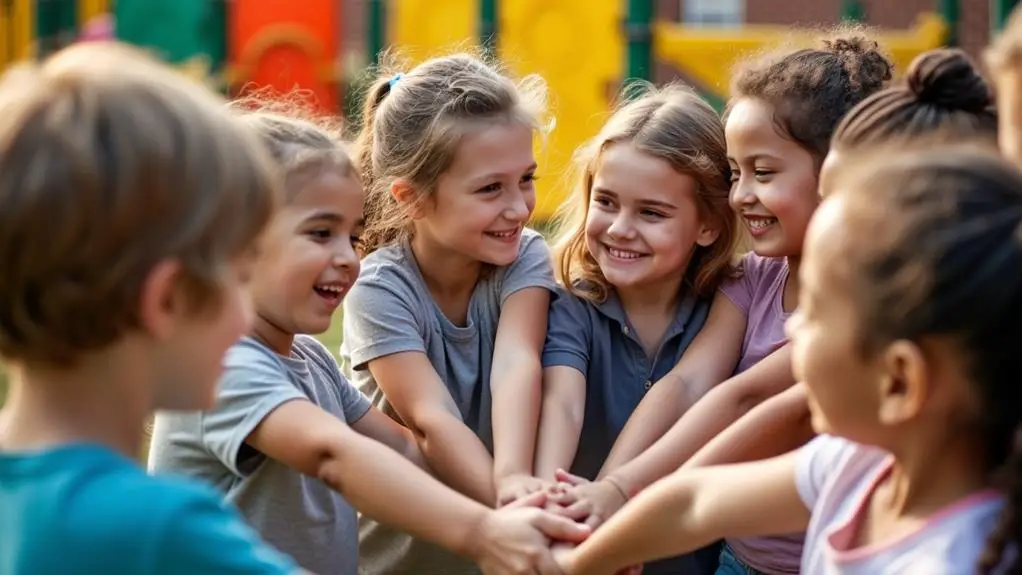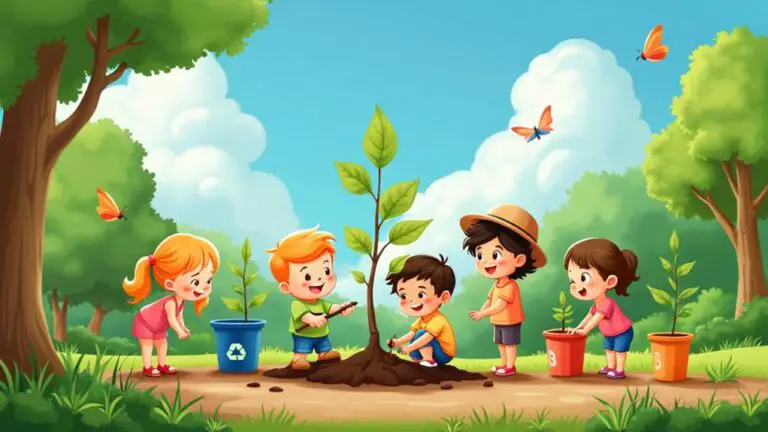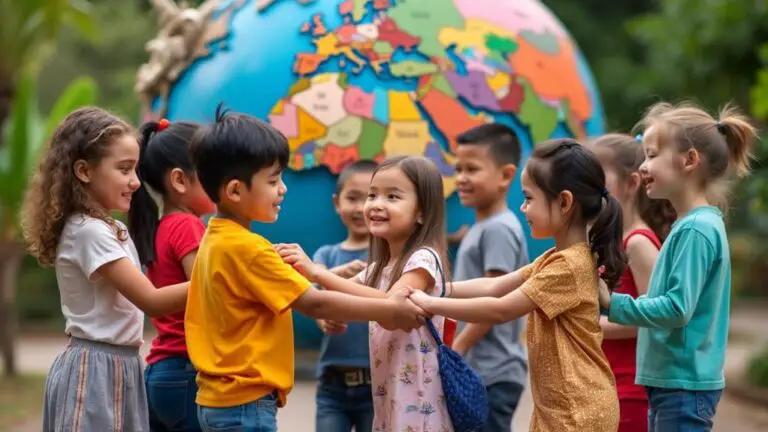Teaching Kids About Respect
As a parent and educator, I've witnessed firsthand the profound impact that teaching respect can have on children's lives. It's a skill that extends far beyond saying "please" and "thank you" – it shapes their entire worldview and future relationships. I've seen shy kids blossom into confident leaders and rowdy troublemakers transform into empathetic friends, all through consistent guidance in respectful behavior. But here's the thing: teaching respect isn't always straightforward. There are challenges and nuances that can trip up even the most well-intentioned adults. So, how can we effectively instill this vital value in our children? Let's explore some proven strategies.
Key Takeaways
- Model respectful behavior consistently, as children learn by observing and imitating adults in their lives.
- Set clear expectations for respectful behavior and communicate them effectively using visual aids and discussions.
- Address disrespectful behavior promptly and calmly, turning incidents into teachable moments.
- Foster empathy and understanding through activities that encourage children to consider others' feelings.
- Reinforce respectful behavior with praise and recognition, creating a positive culture of kindness and gratitude.
Modeling Respectful Behavior
One of the most powerful ways to teach children about respect is by modeling it ourselves. As a parent or caregiver, I've learned that kids are constantly observing and imitating my behavior. By consistently treating others with respect, using good manners, and showing compassion, I'm setting a clear example for my children to follow.
I make it a point to use "please" and "thank you" in everyday conversations, demonstrating the importance of respect in all interactions. Through positive discipline and empathy, I reinforce these lessons and help my kids understand the impact of their actions on others.
I also engage in regular discussions about the importance of respect, which helps solidify the concepts I'm modeling. By creating a culture of kindness at home, I'm teaching my children to respect others in various contexts.
Setting Clear Expectations
Establishing clear expectations is essential when teaching children about respect. I've found that clearly communicating behaviors that show respect, like saying "please" and "thank you," helps set a strong foundation. To reinforce these expectations, I consistently follow up with appropriate consequences for disrespectful behavior.
| Expectation | Reinforcement |
|---|---|
| Use polite language | Praise and recognition |
| Treat others kindly | Engage in discussions |
| Listen attentively | Visual aids (anchor charts) |
| Follow set limits | Appropriate consequences |
| Show gratitude | Regular reminders |
I make sure to engage in regular discussions about respectful behavior, using age-appropriate language. This helps kids understand the importance of respect and how it affects others. By utilizing visual aids and praising positive behaviors, I create a culture of respect that reinforces these expectations. Setting clear expectations is vital in teaching kids to respect others and themselves.
Addressing Disrespect Effectively

Consistency is key when addressing disrespectful behavior in children. I've found that setting clear expectations and consequences helps prevent escalation and reinforces respect for others.
When I notice disrespect, I address it immediately but privately, turning these incidents into teachable moments. I commit to providing calm discussions about respectful behavior, using age-appropriate language to guarantee understanding.
I encourage children to express their feelings, fostering open communication that helps them recognize the impact of their actions.
To correct disrespectful actions effectively, I've developed a structured plan that changes negative patterns and improves family interactions. This approach allows me to address conflicts consistently while promoting self-regulation.
Fostering Empathy and Understanding
Fostering empathy and understanding in children is essential for developing their ability to respect others. I've found that engaging kids in volunteer activities or small acts of kindness effectively teaches them the importance of empathy. Encouraging open discussions about feelings helps children recognize and relate to their peers' emotions, fostering deeper understanding.
| Empathy-Building Activities | Benefits |
|---|---|
| Volunteer work | Promotes kindness |
| Discussing feelings | Improves understanding |
| Taking into account others' emotions | Enhances social interactions |
Studies show that teaching kids to reflect on how their actions affect others leads to improved behavior and reduced disrespect. By incorporating empathy-building activities into daily routines, we can promote emotional intelligence, vital for respectful interactions in various social settings. This approach not only teaches respect but also cultivates a generation of compassionate, understanding individuals ready to engage positively with the world around them.
Conclusion
I've found that teaching kids about respect is an ongoing process. It's not just about rules; it's about nurturing empathy and understanding. By modeling respectful behavior, setting clear expectations, and addressing disrespect effectively, I'm helping children develop a strong foundation for positive interactions. I've seen firsthand how fostering empathy can transform a child's perspective. Ultimately, I believe that cultivating respect in kids creates a ripple effect, building a more compassionate and considerate society for all of us.







